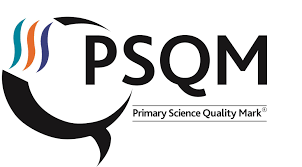Assessment
Our aims
- Every child knows how they are doing, and understands what they need to do to improve. They get the support they need to be motivated, independent learners.
- Every teacher is equipped to make well-founded judgments and knows how to use their assessments to forward plan, to ensure that every child achieves their potential.
- Drighlington Primary School has structured and systematic assessment systems for making regular, useful, manageable and accurate assessments of pupils and for tracking their progress.
- Every Parent and Carer knows how their child is doing and what they need to do to improve.
Assessment in the Early Years Foundation Stage
Assessment in Early Years is based on adults' knowledge of children from observing and working with them in a variety of contexts.
During a child's time in the Foundation Stage, staff use their professional judgement to assess how children are working across the EYFS 17 areas of learning. Adults in contact with the child on a daily basis observe their development and progress and do this mostly in areas of provision. Pathways to assessment are a key aspect of our daily provision and lead to key vocabulary and questions that ensure all staff have a collaborative approach to assessment and teaching.
Observations take place in a range of contexts such as:
- when an adult is modelling play in areas of provision,
- when the child identifies milestones or misconceptions whilst a child is playing.
- conversations with children about their own learning and interests.
We record observations by:
- taking brief notes or photographs about the context, area of learning and any milestones of achievement (floor books)
Parents receive information about their child's progress at parents evenings and in a written report at the end of the year. Parents also have access to our school floor books.
Assessment in Key Stage One and Key Stage Two
Reading:
We make assessment judgements for reading by collecting evidence during reading sessions, English lessons and phonics sessions. In Key Stage 1 we also use Read Write Inc (RWI) phonic screens to support evidence. From Y1 onwards, the children complete termly reading assessments.
Writing:
We make assessment judgements for Writing based on ongoing work in children's books. A range of genre are assessed over the year. These assessments generate targets which teachers use to inform future teaching.
Maths:
Maths assessment judgements are made using a combination of work in books and children's performance on termly tests. The tests generate targets which teachers use to inform future teaching.
Science
Science assessments are completed at the end of each term. Children are assessed against agreed criteria which generates a sub-stage and targets.
Foundation Subjects
Our foundation subjects are assessed using assessment trackers at the end of each unit. This helps us to not only see what knowledge has been retained but also aids planning for future lessons and retrieval oppoirtunities.
Pupil Progress Meetings:
Class teachers regularly meet with a member of the SLT to discuss pupil progress and attainment. The main focus is looking at the pupil’s data and analysing strengths and areas for development. During the meeting a cohort action plan is formulated with the class teacher and their additional adults. Targets are set and actions are identified to help meet the target. These targets are then reviewed at the next Pupil Progress Meeting.
What about children with Special Educational Needs?
Children who are on the school’s register of Special Educational Needs may be assessed against a programme of study for a different year group. For example, a child in Year 5 may be assessed against Year 3 objectives. This will be decided by the class teacher in consultation with the school’s Special Educational Needs Co-ordinator (SENDCo). Some of these children will be assessed against smaller steps than other children using a system called Bsquared. This enables teachers to track their progress more sharply and set more achievable targets for the children.
What formal tests will my child take?
Your child will take certain tests specified by the Government. These are:
Year 1 – Phonics check
Year 2 –SATs tests in Reading, Maths. (now optional)
Year 4 - Multiplication Checck
Year 6 – SATs tests in Reading, Maths and Spelling, Punctuation and Grammar.
If your child is in any of the above year groups you will be given more information about these tests during the year.
Your child will also take certain school-based tests during the year to help us to track their progress against the curriculum.
Where can I find out more?
If you have any specific questions relating to your child’s progress or attainment, the first point of contact should always be their class teacher. For more detail about our assessment procedures, please access the Assessment Policies in the Policies section of the website.
Policies

